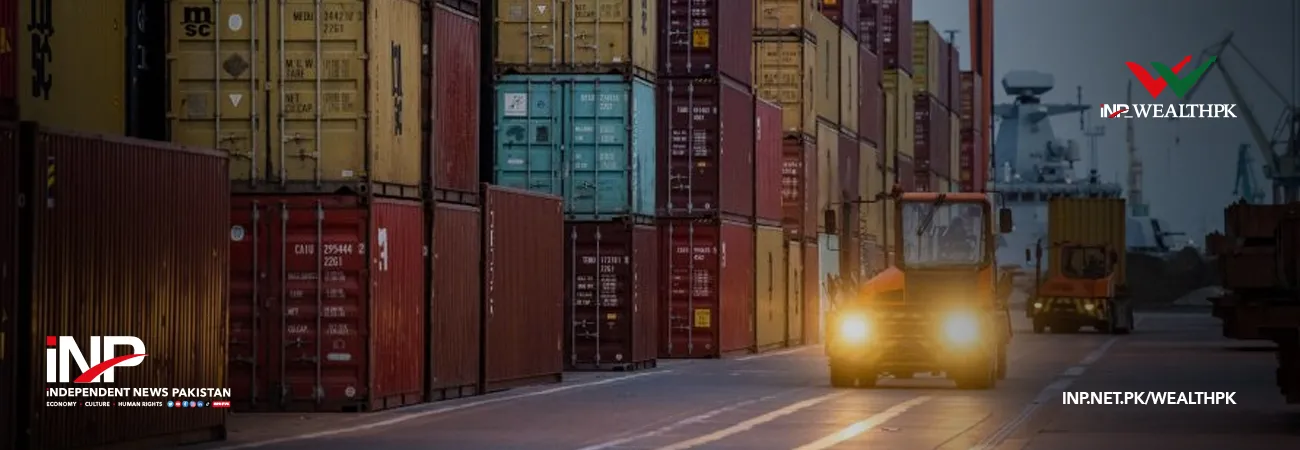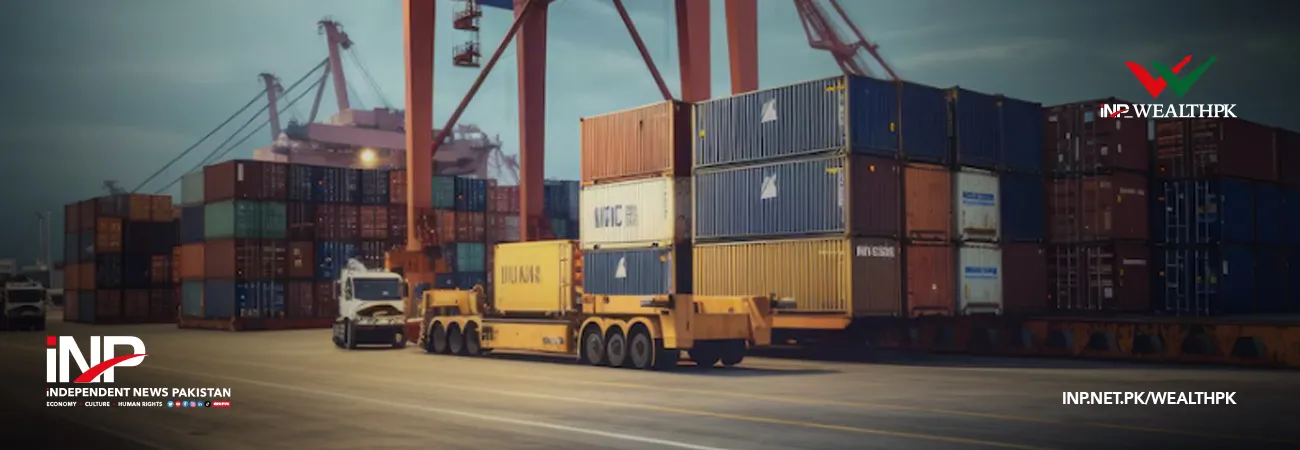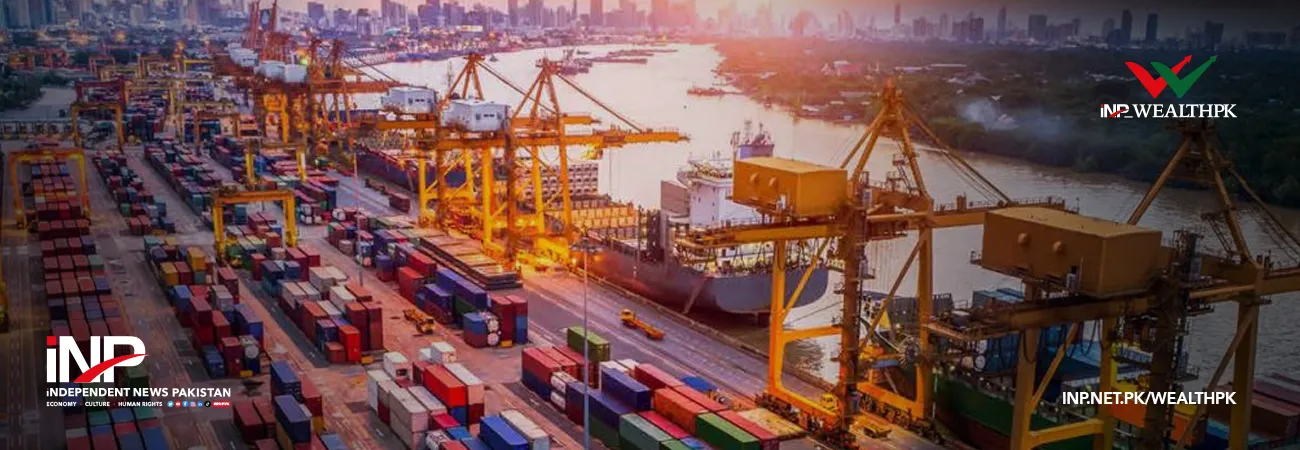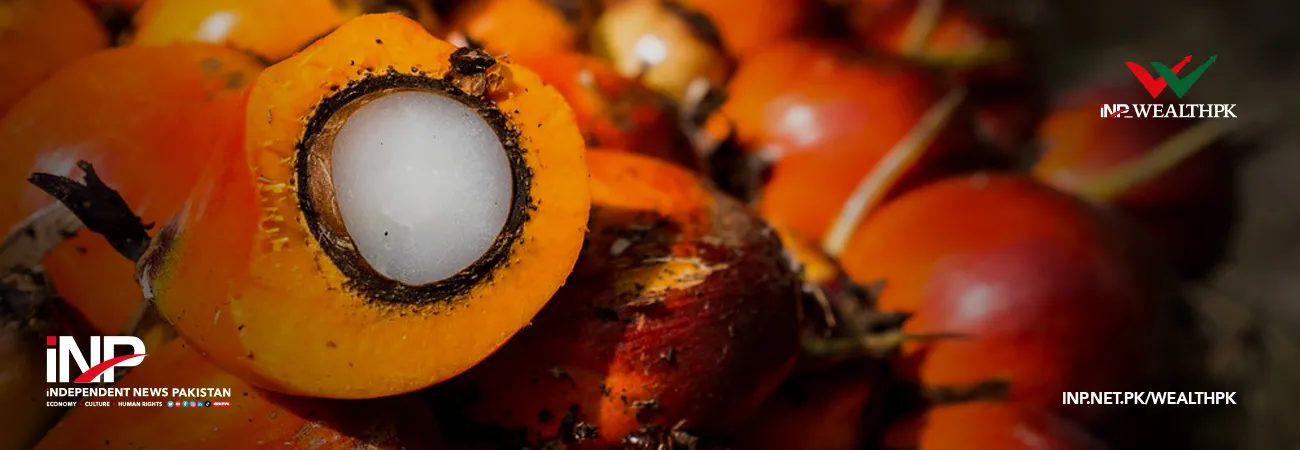آئی این پی ویلتھ پی کے
Ayesha Saba
Pakistan needs to diversify its exports, explore new markets, and focus particularly on high-end exports to resolve the balance of payments-related issues and ensure smooth economic development, said experts. Syed Zafar Ali Shah, Secretary of Planning Commission, said while talking to WealthPK that there is considerable macroeconomic fragility in Pakistan, which could significantly hamper the country's ability to sustain growth and enhance equity.
“The only way to deal with the balance of payments-related issues is to increase Pakistan’s exports. However, it is the biggest challenge how to increase exports from $32 billion to $100 billion,” he said. He said it is necessary to industrialise and make business easier in order to achieve sustainable growth. The secretary said that the country has the potential to attain the goal, but for this, Pakistan needs to find competitive markets.
“We are currently constructing special economic zones (SEZs) to increase our exports. The SEZs will attract domestic and foreign investors to promote and build industrial infrastructure that focuses on export promotion, import substitution, technology transfer, and job creation. Therefore, China and Pakistan are working on the speedy completion of SEZs under the China-Pakistan Economic Corridor (CPEC),” he said.
Zafar Ali Shah said Pakistan also seeks to encourage business-to-business (B2B) cooperation. “In order to give investors a direct venue to generate joint venture ideas, a business forum is developed under the Board of Investment (BoI). The inclusion of Pakistani exporters in the global supply chain is also another goal of this project. However, there isn't a one-day process here, and it takes time,” he explained.
Uzma Zia, a senior research economist at Pakistan Institute of Development Economics (PIDE), told WealthPK that over the past three to four decades, Pakistan's economy has gone through a boom-and-bust cycle. Unfortunately, despite several industrial efforts, Pakistan has not gained momentum on that front.
“We have failed to achieve industrialisation goals in the past due to a variety of factors like low competitiveness, poor infrastructure, lack of product innovation, and ineffective marketing of Pakistani products internationally,” she pointed out. “Nearly half of our export dollars are earned from labour-intensive and light-manufacturing products which make our exports vulnerable to adverse external price shocks,” she mentioned.
Uzma suggested that our industry should explore niche products and shift from low-skilled, low-productivity products to high-end products. For instance, the software and IT solutions demand has been increasing globally. The process of creating a software house is simpler than that of establishing an industrial facility.
“We need our industry to get into knowledge-based and technology transfer-based exports, so that our people raise the productivity level and competitiveness, and get into joint ventures,” she said. “Each SEZ has specific geographical competence and unique competitive production potentials that can be utilised, improved, and flourished by jointly venturing with Chinese companies into these SEZs,” she suggested.
Credit : Independent News Pakistan-WealthPk












